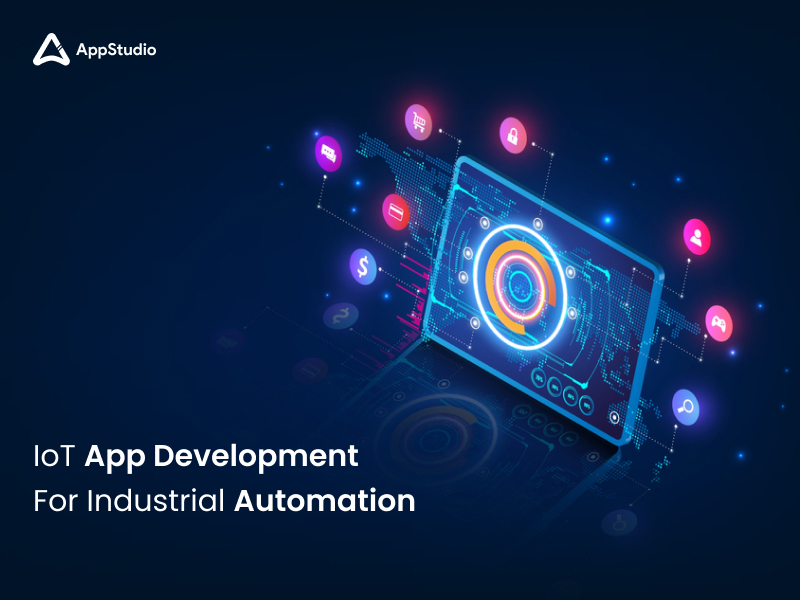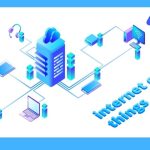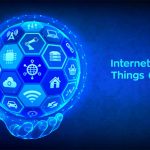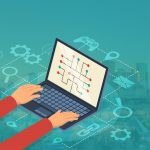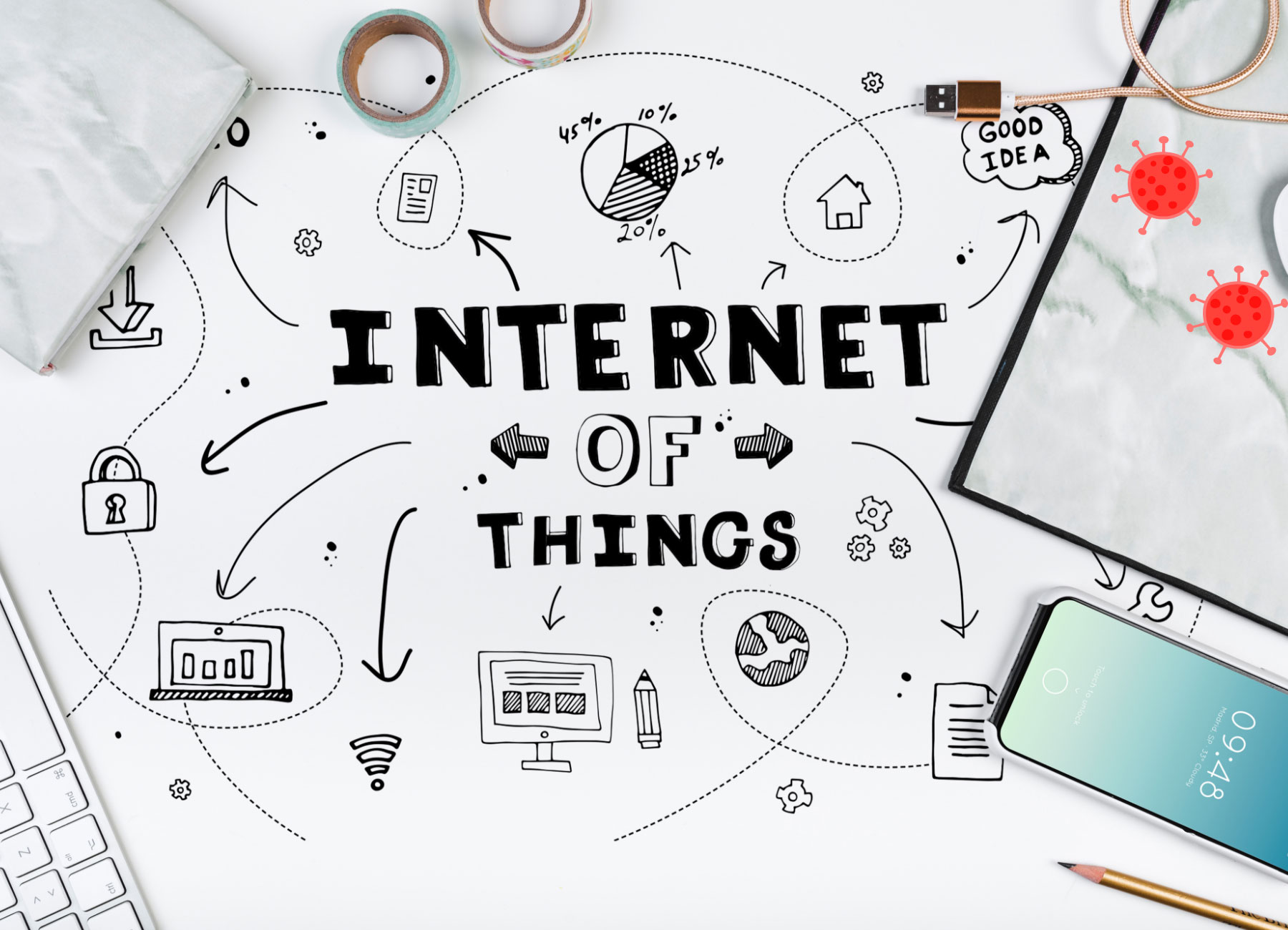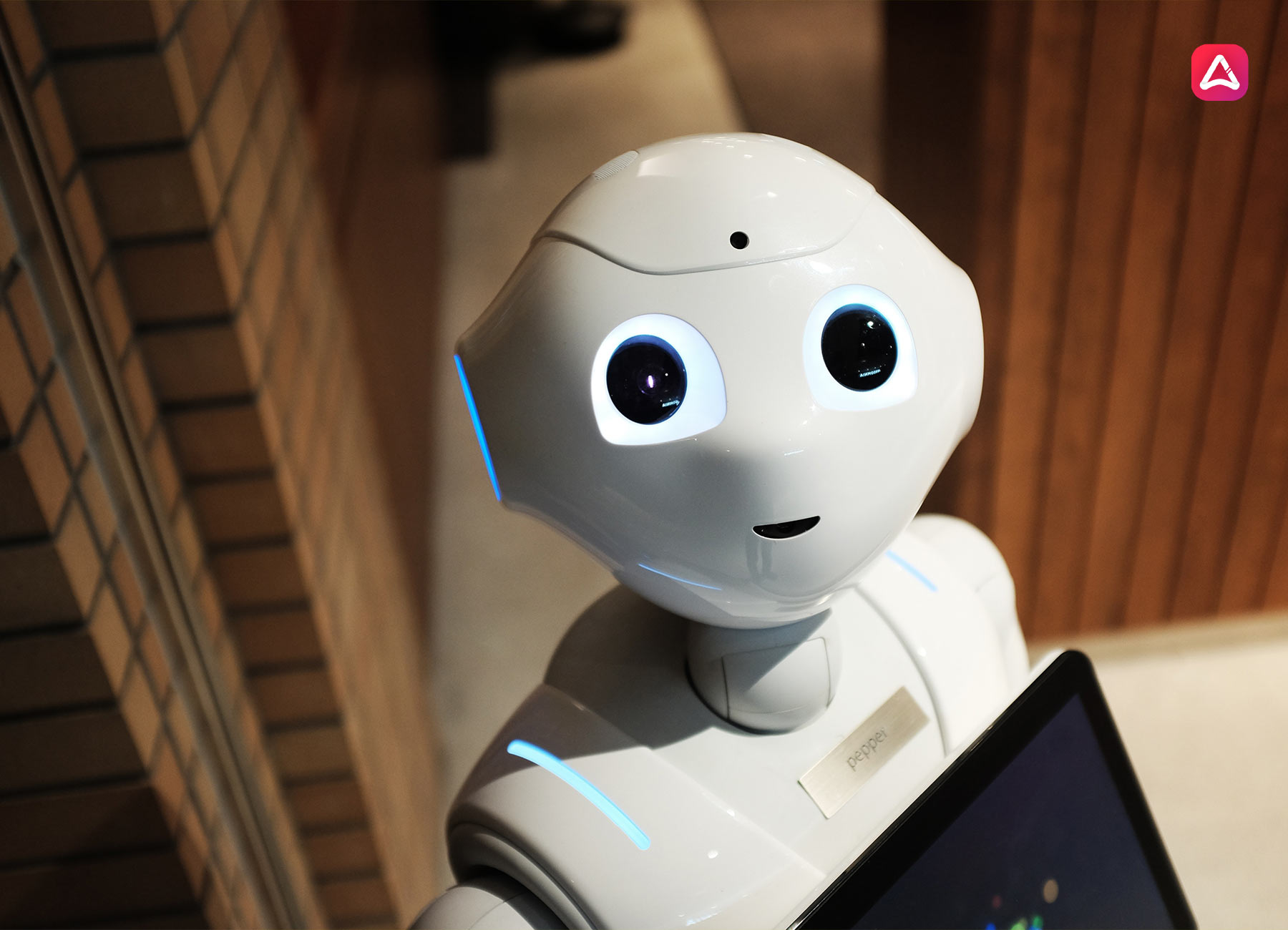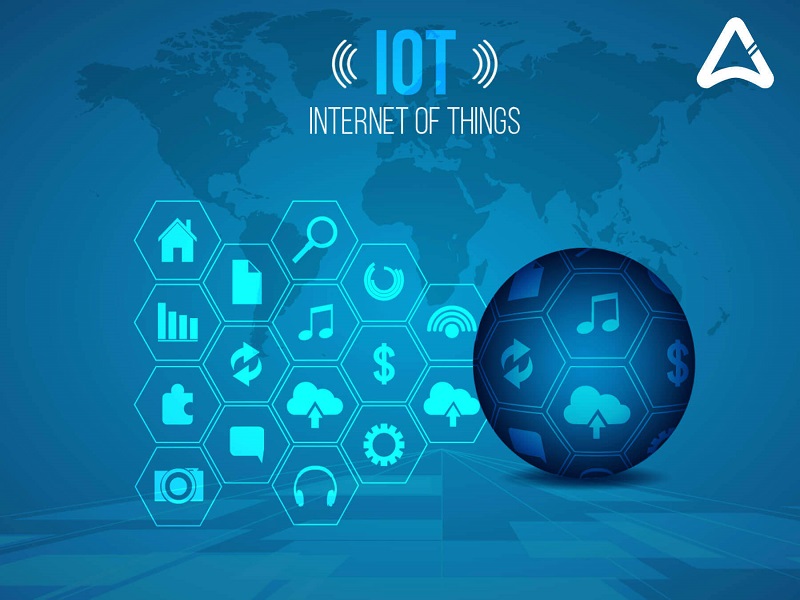The industrialization has a very fascinating history, and if you are an ambitious entrepreneur looking to capitalize on the next big wave, especially IoT app development for industrial automation, then this blog is for you.
The first Industrial Revolution replaced the agrarian and handicraft economy and introduced steam power, mechanization, and water power.
The second industrial revolution introduced mass production and assembly lines by using the power of electricity.
The third industrial revolution revolved around computing power, electronics, and IT infrastructure.
And now, we are almost into the fourth industrial revolution, or Industry 4.0, which is primarily about automation, AI, and the Internet of Things to create smart & intelligent businesses.
Time To Embrace Industry 4.0 With IoT, AI & Automation: Top Benefits
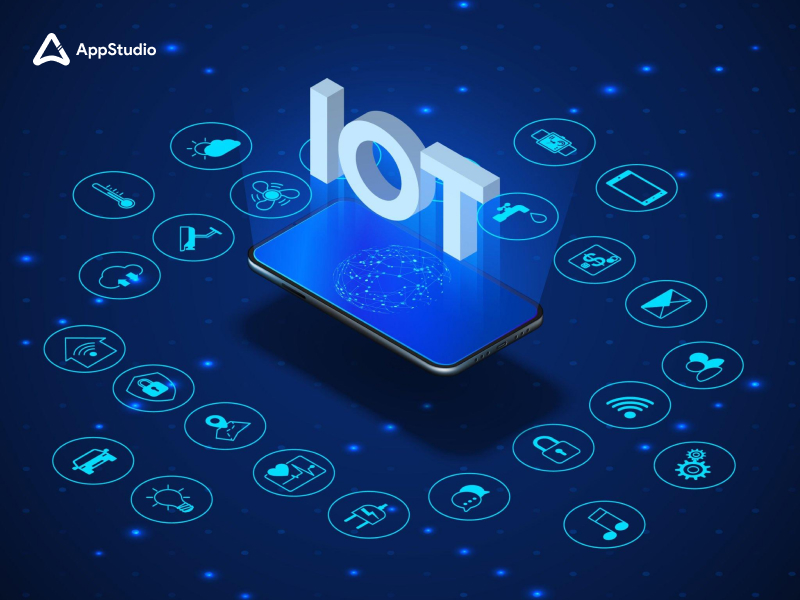
Here are the reasons why businesses should embrace Industry 4.0:
Increased Efficiency: Industry 4.0 technologies enable the automation of repetitive and mundane tasks, leading to increased efficiency in production processes. Automated systems can operate 24/7 without human intervention, resulting in higher productivity, reduced operational costs, and improved quality control.
Enhanced Decision-making In Real-Time: AI and IoT technologies can collect, analyze, and process vast amounts of data in real time, providing valuable insights and actionable information for decision-making. This data-driven approach allows businesses to make informed decisions quickly and accurately, leading to better strategic planning, optimized resource allocation, and improved business outcomes.
Enhanced Productivity: Industry 4.0 technologies can optimize production processes, reduce downtime, and improve supply chain management, leading to enhanced productivity. AI and IoT can also enable predictive maintenance, helping to identify potential equipment failures before they occur, thereby minimizing unplanned downtime and production disruptions.
Improved Customer Experience: Industry 4.0 technologies can enable businesses to offer personalized and customized products and services to their customers. IoT devices can collect customer data and preferences, which can be used to tailor offerings, leading to improved customer satisfaction and loyalty.
Innovation and Competitive Advantage: Embracing Industry 4.0 technologies triggers innovation within the business operations and help it stay ahead of the competition. Automation, AI, and IoT can enable businesses to develop new products, services, and business models, and gain a competitive edge in the market.
Sustainability and Resource Optimization: Industry 4.0 technologies can enable businesses to optimize resource usage, reduce waste, and minimize environmental impact. Automation can lead to optimized energy consumption, while AI and IoT can help in monitoring and managing resources efficiently, leading to more sustainable business practices.
IoT & Industrial Automation: An Introduction
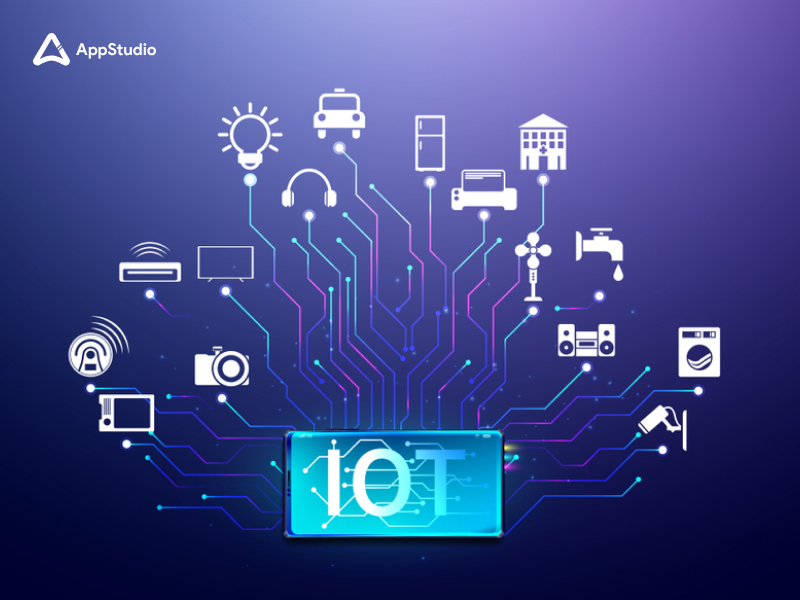
By deploying the Internet of Things for Automation, businesses such as agriculture, logistics, manufacturing, wholesale, and retail can not only streamline most of the processes, but also minimize risks, and enhance productivity and profitability by deploying innovative tech-based solutions.
IoT solutions encompass various components that work together to create a comprehensive system for industrial automation. Let’s take a closer look at what comes under an IoT solution:
Devices: Devices are essential components of an industrial IoT solution and can include sensors, robots, PLCs (Programmable Logic Controllers), human-machine interfaces, cameras, and other equipment used in large-scale industrial automation. These devices collect data from the environment or perform specific tasks as part of the automation process.
Connectivity: Connectivity is crucial in an IoT solution as it enables the communication between different parts of the system. Devices need to be connected via cellular, Wi-Fi, or Ethernet connections to ensure quick and seamless communication, whether it’s between devices or between devices and human operators or PLCs.
Data: Data is the information collected from the devices within the IoT system. It can include various types of data such as temperature, pressure, humidity, production metrics, and more. This data is collected, stored, and processed using edge devices or other computing resources to gain insights and optimize the performance of the system.
Cloud: Cloud platforms play a significant role in enterprise-level IoT implementations. They provide remote administration capabilities, allowing data to be hosted securely in the cloud and enabling remote access and control of the IoT system from anywhere. Cloud platforms also facilitate centralized control and management of the system, making it more convenient and accessible for remote operations.
IoT solution for industrial automation comprises devices, connectivity, data, and cloud components working together to create a connected and optimized system. These components enable seamless communication, data collection, analysis, and remote administration, ultimately improving the efficiency, performance, and scalability of industrial automation processes.
IoT App Development For Industrial Automation: 5 Case Studies
Here are 5 stunning case studies, which highlight why IoT app development for industrial automation is no more a luxury, but a necessity for industrial-level production and workflow:
Enhanced Agricultural Productivity: IoT has revolutionized agriculture by enabling precision farming, optimizing resource usage, and automating various farming processes. For example, John Deere, a leading agricultural equipment manufacturer, uses IoT sensors to collect real-time data on soil moisture, temperature, and nutrient levels. This data is then analyzed to determine the optimal time for planting, watering, and harvesting, resulting in improved crop yield and reduced resource waste.
Manufacturing Transformed: IoT has transformed manufacturing by automating production lines, enhancing operational efficiency, and improving product quality. Bosch, a global technology company, implemented an IoT solution in its manufacturing plants to track and analyze machine performance in real time. This data is used to predict maintenance needs, schedule repairs, and optimize production processes, resulting in reduced downtime, improved productivity, and cost savings.
Smart Logistics For More RoI: IoT has brought significant advancements to logistics and supply chain management by improving visibility, tracking, and automation. DHL, a global logistics company, uses IoT sensors and devices to track shipments, monitor temperature and humidity during transportation, and optimize routes. This enables real-time monitoring of shipments, ensures timely deliveries, and reduces losses due to spoilage or damage.
Energy Sector Automated: IoT is being used to automate and optimize energy generation, distribution, and consumption. For example, Enel, a global renewable energy company, uses IoT sensors in its wind and solar farms to collect real-time data on weather conditions, equipment performance, and energy production. This data is analyzed to optimize energy generation, predict maintenance needs, and improve overall efficiency.
Smart Real Estate: IoT has transformed building management by automating processes such as lighting, heating, ventilation, and security. One example is the Edge, a smart building in Amsterdam, which uses IoT sensors to monitor occupancy, temperature, and lighting conditions in real time. This data is used to optimize energy usage, create comfortable environments for occupants, and enhance building security.
And we have barely scratched the surface here!
Searching for IoT app development company? Schedule a no-obligation consulting session with our IoT App experts for industrial automation, and explore the possibilities.
We at AppStudio are experts in Mobile App Development Services and Digital Transformation for startups, enterprises, SMEs, and corporations.
